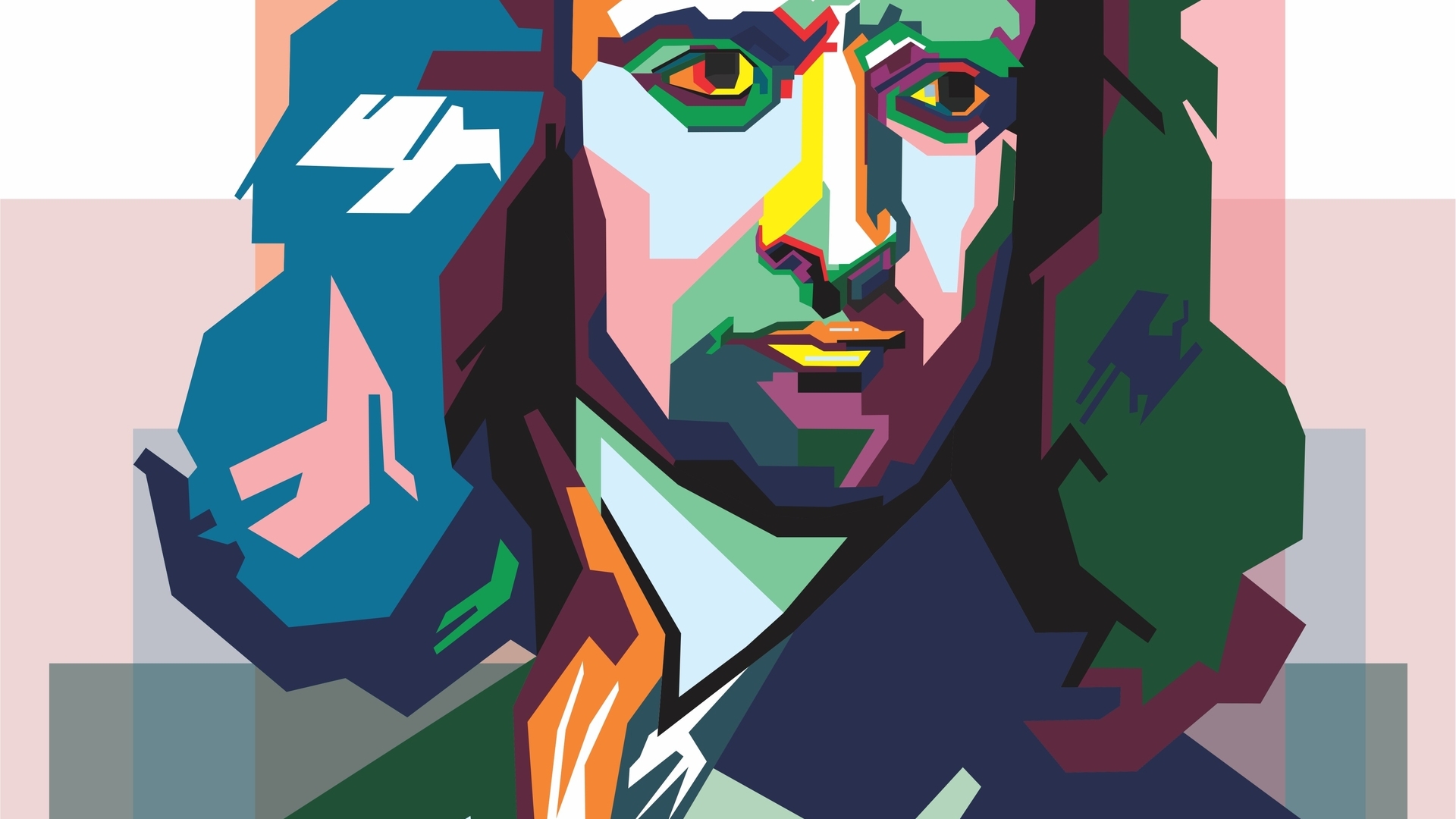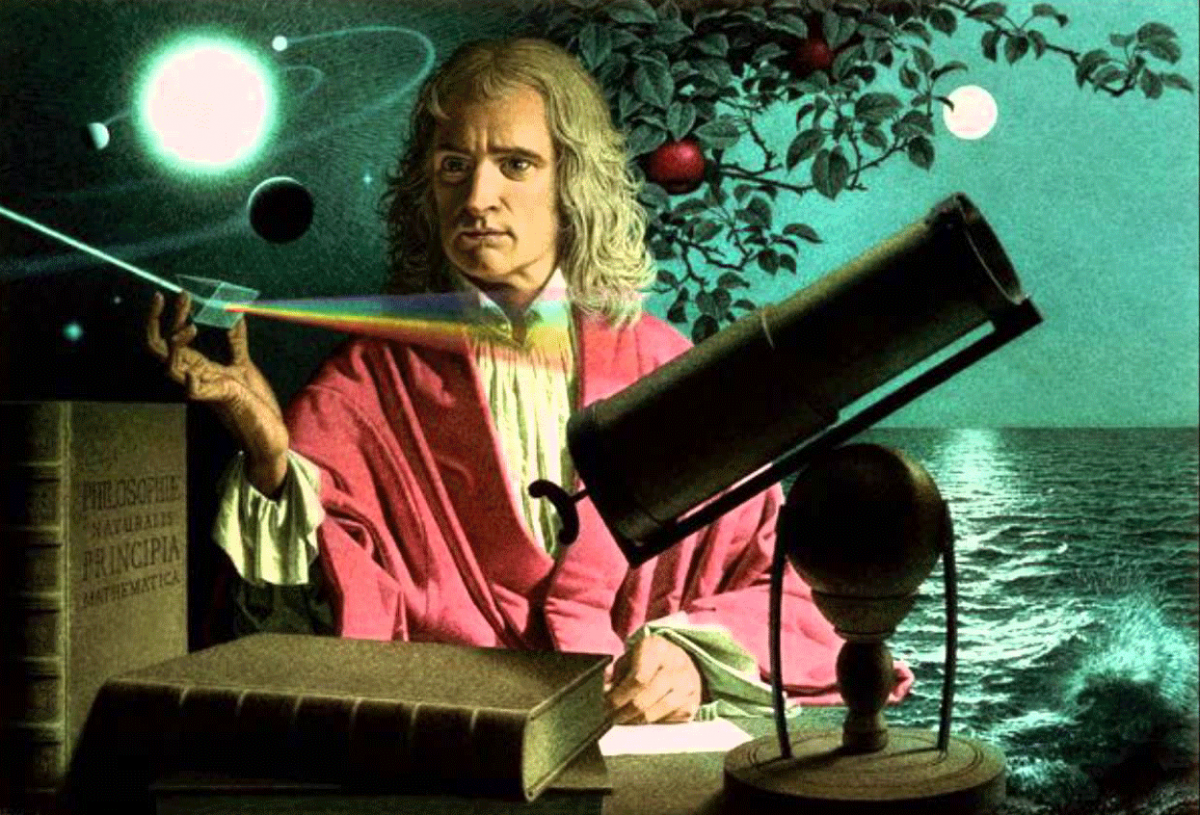Sir Isaac Newton Part 1
Someone is able to multiply in the mind of a five-digit number. Another barely count change at the store, but it can garbage collect the car of the Apocalypse. Third in the forces to drive a General formula of all — unless, of course, it will remove the straitjacket. And sometimes people are born capable of with a Cup of tea to write the theory of optics, in the afternoon to develop methods of integral calculus, and before going to bed to jot down the laws of gravity — and all this in an era when the squares are still sometimes burned witches and famous scientists seriously interested in the occult…

It’s hard to know much, to know everything is impossible. But to make great discoveries in various areas of fundamental knowledge and to determine the shape of science for hundreds of years — it is almost a miracle. There were a few people whose portraits are hanging at the same time in classrooms of mathematics, physics, astronomy, and cultural studies. And perhaps the main “the Messiah of science” was sir Isaac Newton.
In 2005 the Royal society held a vote on the nomination of the most influential physics of the planet’s history. Newton was deemed more important than Einstein.
In April 1642 the wealthy, but absolutely illiterate farmer Isaac Newton from a small village Valstorp married a well-educated 19-year-old Anna of the village of Market Overton. The happiness of the young was short-lived. In October, her husband died. And exactly on Christmas day, 25 December, Anna gave birth to a boy. It was named in honor of his father Isaac. These circumstances determined the fate of scientific progress, after all, if Isaac senior was alive, he probably would be raised the son of a farmer.
The Estate Of The Newtons, Valstorp
The baby was born prematurely. The memories of the mother, the child were so small he could fit in a Cup for a quarter of a quart. Everyone expected that he will not survive the day. However, despite this, Isaac grew up healthy and lived to be 84 years old.
Three years later Anna was married to a wealthy vicar, Barnaby Smith, who at that time was 63. She left her parents and moved to the monk. The second marriage of the mother “gave” Newton’s two half-sisters and one half-brother (Mary, Benjamin, and Anna). I must say that relations between them were good — tasted success, Isaac has always helped half-relatives.
Some researchers believe that the young Newton was autistic. He didn’t say (quality, continuing throughout his life) and was so lost in thought that he forgot to eat. To seven years it was often “stuck” in the repetition of the same sentences, which naturally did not add to the strange boyfriends.
The extraordinary talents of Isaac first appeared on practical grounds. He was making toys, miniature windmills, kites (ran them with lights and spread around a rumor about the comet), made stone sundials for your home, and also measured the strength of the wind, leaping in his direction and against.
In 1652 Newton was sent to the school of Grantham. This town was only 5 miles from his house, but Isaac chose to leave home and moved in with Apothecary — Mr. Clarke. School Grantham preserved until now.
In 1656 the vicar dies, and the widow Smith returned to the family estate. Not to say that Isaac was happy for her. At the age of 19 years, he compiled a list of his past sins youth, where, in particular, indicated the intention to burn the house of the vicar, along with his negligent mother. Anna belatedly decided to take part in the upbringing of the firstborn and decided that the son would follow in his father’s footsteps. Isaac was taken from school, and for some time he diligently dug up the fields of Lincolnshire.
Introduction to earth was short-lived. Through the efforts of Reverend William ASCO (mother’s brother Newton and pastor of a nearby village), English agriculture had lost another bad employee. Uncle noticed the scientific progress of the young men and persuaded Anna to send her son to University.
Lonely and brilliant
The first time Newton was submission — or more simply, paid for school by working on the farm. In the spring of 1664, he was enrolled in Trinity College scholarship. This opened him the access to a huge library of Cambridge. The young man greedily devoured the works of Archimedes, Aristotle, Plato, Copernicus, Kepler, Galileo, and Descartes — those very giants on whose shoulders, in his own words, he was standing in the future.
About his relations with classmates remained little information. It can be assumed that the closed Newton who is in the citadel so they adored science, avoiding riotous student life. Know that once he changed the room because of the “violence” of a neighbor, and settled near the quiet by John Wilkins.

Trinity College
Fascinated by optics, Newton devoted much of her time monitoring of atmospheric phenomena — in particular, halo (ring around Sun).
Isaac had a year to gain basic knowledge in mathematics, physics, and optics. In July 1665, London was hit by a terrible plague. The number of victims was so great that the University dismissed the students home (for the next two years, Cambridge has been closed and opened several times).
Newton took a “sabbatical” and returned to his native Valstorp. The tranquility of rural life has a positive impact on Isaac. Noisy students are not distracted him from the books, so in January 1665 he defended bachelor’s degree, and in 1668 he became a master.
It may seem strange, but Newton made major discoveries, as a student of Cambridge. He did not shout “Eureka!” at every corner and sought to popularize its achievements, so the world fame of Isaac was only in adulthood.
To 23 years the young man has mastered the methods of differential and integral calculus, derived the formula of the binomial theorem, formulated the fundamental theorem of analysis (later called the “formula of Newton-Leibniz), formulated the law of universal gravitation, and proved that white color is a mixture of colors.
All this was done with the help of brief notes in the diaries. According to him, the thoughts of Newton freely jumped from optics to mathematics and Vice versa. The soothing silence of the countryside provided him with an unlimited amount of time for reflection. He explained the success by the fact that thinking constantly.
